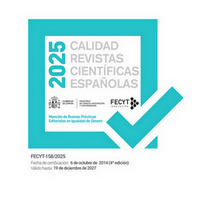The Wahhabism. Religion as a legitimate element of the political power in Saudi Arabia, 1744–1932
DOI:
https://doi.org/10.24197/ihemc.38.2018.349-376Keywords:
Religion, Politics, Wahhabism, Al Saud, ArabiaAbstract
Religion, more specifically the revival current of the Sunni cleric Muhammad Ibn Abd al-Wahhab, played a major role in shaping the Saudi state between the eighteenth and twentieth centuries. The alliance established between the Al Saud´s and Abd al-Wahhab allowed to reach to this dynasty the legitimacy necessary to unify to the different tribes that populated Central Arabia in XVIII century. Thanks to the intimate union between religion and politics, Wahhabi doctrine achieved the exclusiveness of religious indoctrination of Nayd´s population, and the Al Saud´s political leadership in the goal of becoming a unified state in the Arabian Peninsula.
Downloads
Downloads
Published
Issue
Section
License
All the articles published in Investigaciones Históricas, época moderna y contemporánea will have a Creative Commons Attribution 4.0 International License (CC BY 4.0).
The journal allows the authors to retain publishing rights. Authors may reprint their articles in other media without having to request authorization, provided they indicate that the article was originally published in the journal Investigaciones Históricas, época moderna y contemporánea.



